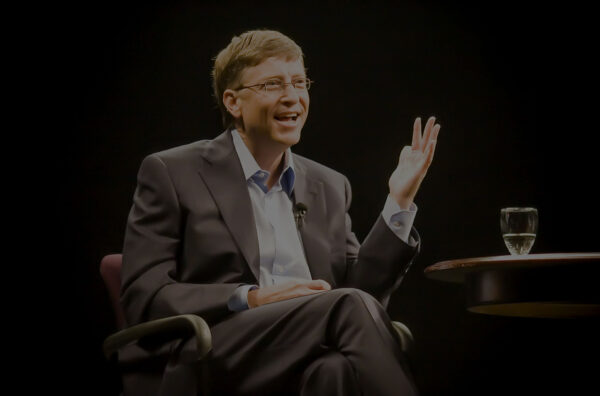Not even the smartest techies and spokespeople at the top of the ladder can accurately predict what will come along in terms of technology within the next few years. Technology has become unpredictable to the point where some of the seemingly ridiculous inventions featured in the Jetsons cartoons have come to fruition (flat screen TVs, anyone?). Here are some real, yet totally off-the-wall, predictions that didn’t stand the test of time.
The Sell-What-I’ve-Got Prediction
“We will never make a 32-bit operating system” — Bill Gates
Today, we’ve switched to 64-bit computer operating systems. Hopefully, they’ll never make another 32-bit operating system, assuming they haven’t already stopped.
The Dismiss-And-Ripoff Prediction
“This ‘telephone’ has too many shortcomings to be seriously considered as a means of communication.” — William Orton, president of Western Union,1876
When Alexander Graham Bell was looking for someone to take on his invention, Mr. Orton quickly dismissed it as a novelty idea, or did he? Within a year, Western Union created a sister company and jumped on the market. The company, American Speaking Telephone, was eventually sued by Bell Co., and it was forced to hand over the phone business.
The Science-Fiction-Dismissive Prediction
“There is no reason anyone would want a computer in their home.” — Ken Olson, president, chairman and founder of Digital Equipment Corp. (DEC), 1977
Can you think of a reason why you wouldn’t have a computer in your home? According to a report by Forrester Research, there were over one billion PC’s in-use worldwide by the end of 2008, and it’s estimated to be two billion in-use by the end of 2015.
The Whoops-Maybe-We-Were-Wrong Prediction
“The world potential market for copying machines is 5,000 at most.” — IBM
IBM had these kind words to say to the eventual founders of Xerox, believing there wasn’t enough demand for a photocopier to justify production. Today, although many offices attempt to reduce paper, everyone knows what to do when asked to “Xerox” a document.
The I’m-Too-Heavily-Invested-In-Candle-Stocks Prediction
“When the Paris Exhibition (of 1878) closes, electric light will close with it and no more will be heard of it.” — Oxford Professor Erasmus Wilson
If only he were around today, then, perhaps, he would take electric light for granted like the rest of us.
The I-Had-No-Idea-Kids-Would-Be-Fat-And-Lazy-In-The-Future Prediction
“Television won’t be able to hold on to any market it captures after the first six months. People will soon get tired of staring at a plywood box every night” — Darryl Zannuck, movie producer, 20th Century Fox, 1946
Cable subscriptions may be down, and televisions are no longer held in wooden casings, but the addiction to the in-home small screen continues to grow. Netflix, Hulu, and newcomers like SlingTV are eating marketshare in the multi-billion dollar television industry.
The Please-God-Be-True Prediction
“There’s no chance that the iPhone is going to get any significant market share. No Chance” — Steve Balmer 2007
Today, the market share of Apple’s iPhone is 38.8%, proving it continues to hold a respectable portion of the market.
The Why-Can’t-This-Be-True Prediction
“Two years from now, spam will be solved.” — Bill Gates, 2004
While email users continue to receive heartbreaking pleas from Nigerian princes, at least spam filters have evolved to catch most of the riff-raff.
The Executive-Said-It-Best Prediction
“I think there is a world office for maybe 5 computers.” — Thomas Watson, 1943, chairman of IBM
To be fair, the computers of 1943 were literally the size of a large room, and, like any new technology, the costs were astronomical. In 1956, the first hard drive from IBM in the RAMAC 305 shipped with a whooping 5MB at $10,000 per megabyte and was the size of two refrigerators. Today, we can safely say he was off by about 2 billion computers.
The Still-Might-Be-True Prediction
“I predict the Internet will soon go spectacularly supernova and in 1996 catastrophically collapse.” — Robert Metcalfe, inventor of Ethernet, December 1995
Alas, the Internet survived its doomsday prophecy, and Metcalfe was left eating his own words, literally. In 1999, during the Sixth International WWW Conference, Metcalfe put a copy of the InfoWorld magazine where he was quoted into a blender and drank it. Cheers!
So much has changed in the last few decades that it’s hard to predict where we will measure up within the next few years. Our advice? Keep predictions as outlandishly positive as possible and keep your fingers crossed – it may actually happen!

